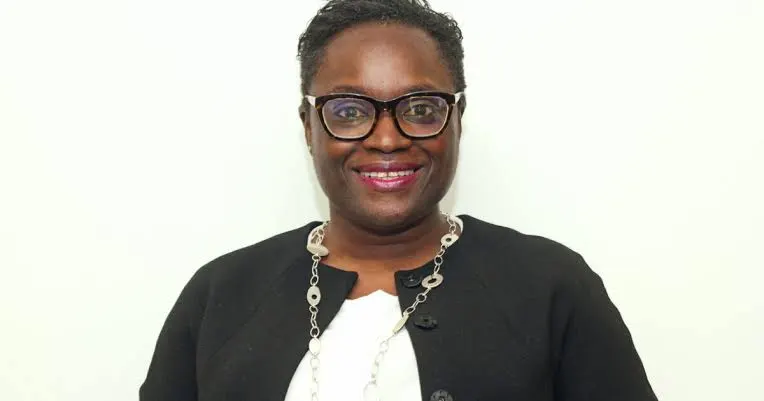Divide and Misrule.
- Fabiana

- Nov 5, 2016
- 4 min read

As I made my way to a screening of ‘The Divide’ at the Houses of Parliament last month, hosted by the Fabian Women’s Network Public Speaking Club, a friend suddenly fell ill just outside of the building. Immediately, I changed my route and quickly saw that she got to the nearest hospital where, after the inevitable wait, she received quality, free medical attention.
Running back across the bridge to Westminster Hall in the hopes I might still catch the documentary, the events of the day were all too pertinent. ‘The Divide’, an adaptation of the 2009 socio-economic book The Spirit Level ( Pickett & Wilkinson), tracks the parallel lives of families and individuals in the United Kingdom and United States, where the access to quality and affordable healthcare is just one of the stark contrasts between these two leading economies. But most striking about The Divide is the cross-border inequality which binds the poorest, most disenfranchised and even (intermittently) incarcerated populations of the US and UK together.
Tracking life stories in two developed, capitalist economies, The Divide uses interview vignettes to showcase the relative economic and political circumstances in which families find themselves. The Divide undermines the assumption that the UK strides far ahead of its American counterpart in poverty alleviation, a point which is crystallised by the poetic and often comical insights offered by Darren, a Glaswegian, who talks about the short life he expects to live as a result of food poverty and the substance abuse that is widespread in his community. His socially destitute counterpart in the US is fiercely intelligent lifer Gary, kept in cruel solitary confinement, sizzling with anger behind razor wire.
Janet, an anxious Walmart shop assistant, details a life story which underwrites the costs incurred to ‘everyday working people’ through the project of globalisation; once a small business owner of a film store, her family business is obliterated by the opening of a local Walmart. In what is a cruel twist of fate, she must seek work at the chain store which put her out of business and despite her diligence, her eyes dart back and forth and her hands shake as she describes the uncertainty she faces maintaining a place to live.
Alden in New York and Rochelle in Tyneside both work such long hours they barely see their children. Each feels economically insecure, but there the similarity ends. Rochelle is a care worker rushing between 30 minute (max!) appointments whereas psychologist Alden’s long days are spent cooped up with the Wall St traders who he counsels for a significantly higher financial reward. Alden professes himself to be happy, where Rochelle has rather less to feel positive about in her situation.
The Divide is a mix of life stories about poverty, inequality of opportunity and the aspirations held by so many for the trappings of a middle class existence. Intermixed with some of the most desperate and moving personal journeys are those of families living in gated communities searching for safeness in exclusion, yet themselves feeling alienated from their neighbours with shiny new golf carts who declare that raking leaves is for ‘poor folks’ and whose children are trained to run away in terror from any other who they perceive to be different. What The Divide makes most clear, perhaps, is that at the sharp edge of capitalism, even the marginally more fortunate are not safe from a sudden fall from economic grace. Crucially, the viewer is placed in a unique position to sympathise with every life experience, despite the stark contrasts in orientations, aspirations or current circumstances.

The Westminster audience had the privilege of meeting film director Katharine Round, who provided a detailed and considered explanation of her work, outlining the reasons for choosing each subject and providing a precious insight into the personal and emotional work invested in each interviewer/interviewee relationship depicted on screen. The documentary also touches on racial divisions, which sadly since 2014 have been brought into sharper focus. Eager to hear more, I was inspired by Round’s incisive evaluation of how some of her subjects used the idea of the ethnic “other” or outsider to justify their entitlement to belong in middle class America.
With just days to go until the most divisive US Presidential Election in living memory, The Divide brings the power of political ideology into sharp focus as a force for good, or as a tool to widen social as well as economic divisions. Of course as The Spirit Level showed, the more equal a society the better off everyone becomes – and the Brexit result from the Referendum is the UK nemesis of rising inequality after prior decades of progress. Now, two years after the filming, there has never been a more divided or divisive US election – not only by gender or by attitudes to women, but in terms of class, education and race.
In light of all that is moving and shifting in our world, viewers left the screening humbled and angry – and perhaps, most importantly, motivated. As the documentary makes exceedingly clear, inequality is growing, and the fight against the widening divide is ours to advance.
Priscilla Mensah with Jos Bell
Fabian Women’s Network Public Speaking Club.








Comments